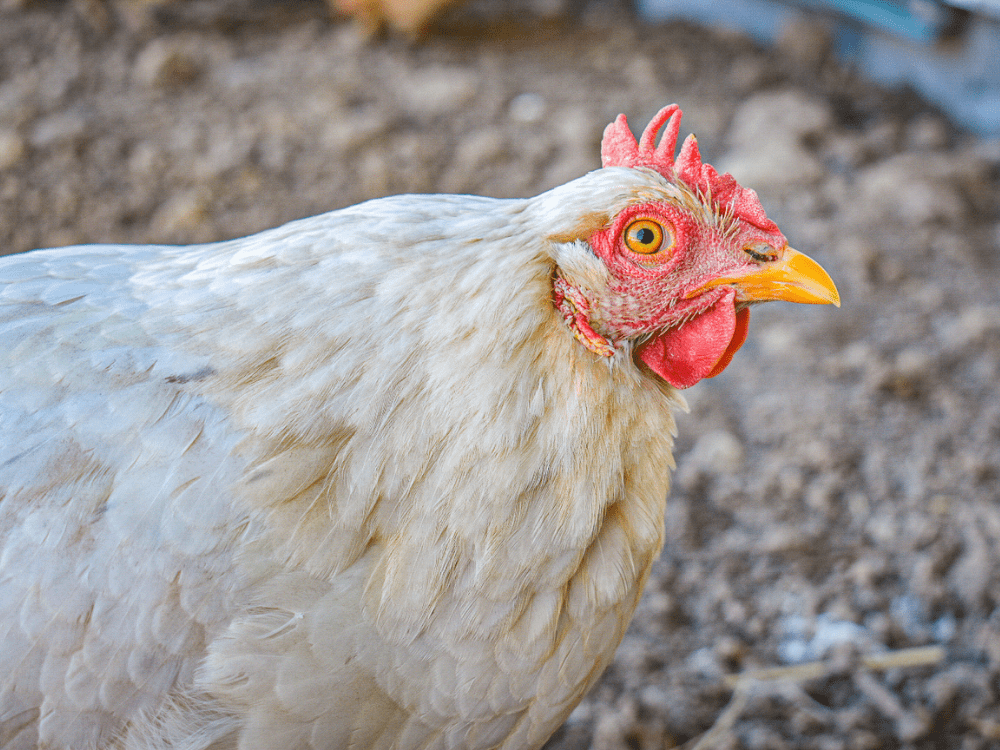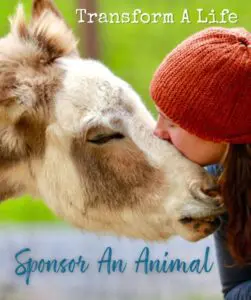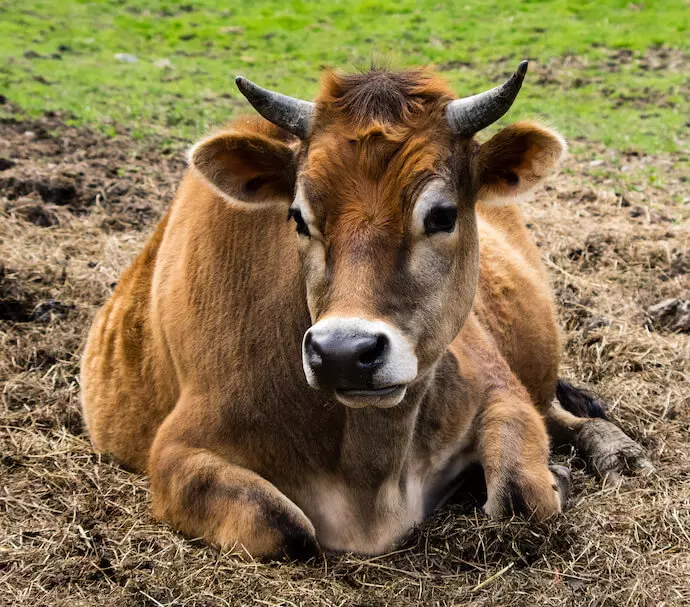
“If hens lay eggs anyway, why is it unethical to eat them?”
We get this question a lot. And with idyllic images of hens exploring grassy fields plastered on egg cartons and in grocery stores, challenging that notion can be difficult. However, even the happiest hens in the world (yes, even the ones in cage-free farms or your neighbor’s backyard) will suffer unnecessarily from egg production.
It might be hard to imagine, but before they were domesticated, chickens (like most other birds) only laid between 10-12 eggs per year, and they didn’t lay those eggs for us to eat— they laid them to hatch. Today, a hen can expect to lay between 300 and 350 eggs per year.
That “overdrive” of their system actually puts a lot of strain on their bodies, which is why the life expectancy for an egg-laying hen is only about 18-22 months. When they’re treated better, they can live longer, but they will still experience pain and disease from the overproduction of eggs. Eventually, their bodies just can’t keep up with the constant depletion of calcium and other vital nutrients. Egg-laying hens are extremely prone to ovarian cancer, prolapses, and other reproductive illnesses— we once rescued an egg-laying hen who had a grapefruit-sized mass of impacted egg material stuck in her tiny body, and the horrors do not stop there.
But by far, one of the most heartbreaking aspects of the egg industry (whether we’re talking about major egg companies, the farmstand around the corner, or someone’s backyard) is what happens to the male chicks at hatcheries. Almost all chicks in the US come from large-scale hatcheries and are shipped to Tractor Supply, local feed stores, and farms via USPS. Many die on the journey. These hatcheries all practice “male culling” which is the industry term for the killing of approximately 300 million male chicks in the United States mere hours after they’re hatched. For every single chick you see in the store, there is at least one male who was killed violently.
Most people who eat eggs or have chickens in their backyard don’t realize these hidden cruelties, but they’re there. Additionally, the most common request we receive by far is to take in “oops” roosters (chicks who were thought to be hens but grew into males), or roosters who have been dumped. As a result, sanctuaries like ours have many more roosters than hens and can’t offer a home to any more. We hate to think of what happens to the ones we never hear about.
Truly, the only compassionate eggs are ones that are made from plants. With brands like JustEgg and Follow Your Heart, it’s easier than ever to rethink your breakfast.
Click Here For Delicious Vegan Recipes!
animal friends, animal lovers, animal rescue, animal rights, animal sanctuary, backyard coop, backyard hens, be kind to animals, Catskill Animal Sanctuary, chicken, chickens, cruelty-free eggs, egg free, eggs, farm animal rescue, HudsonValley, humane eggs, humane myth, Love Spoken Here, sanctuary life, vegan food






